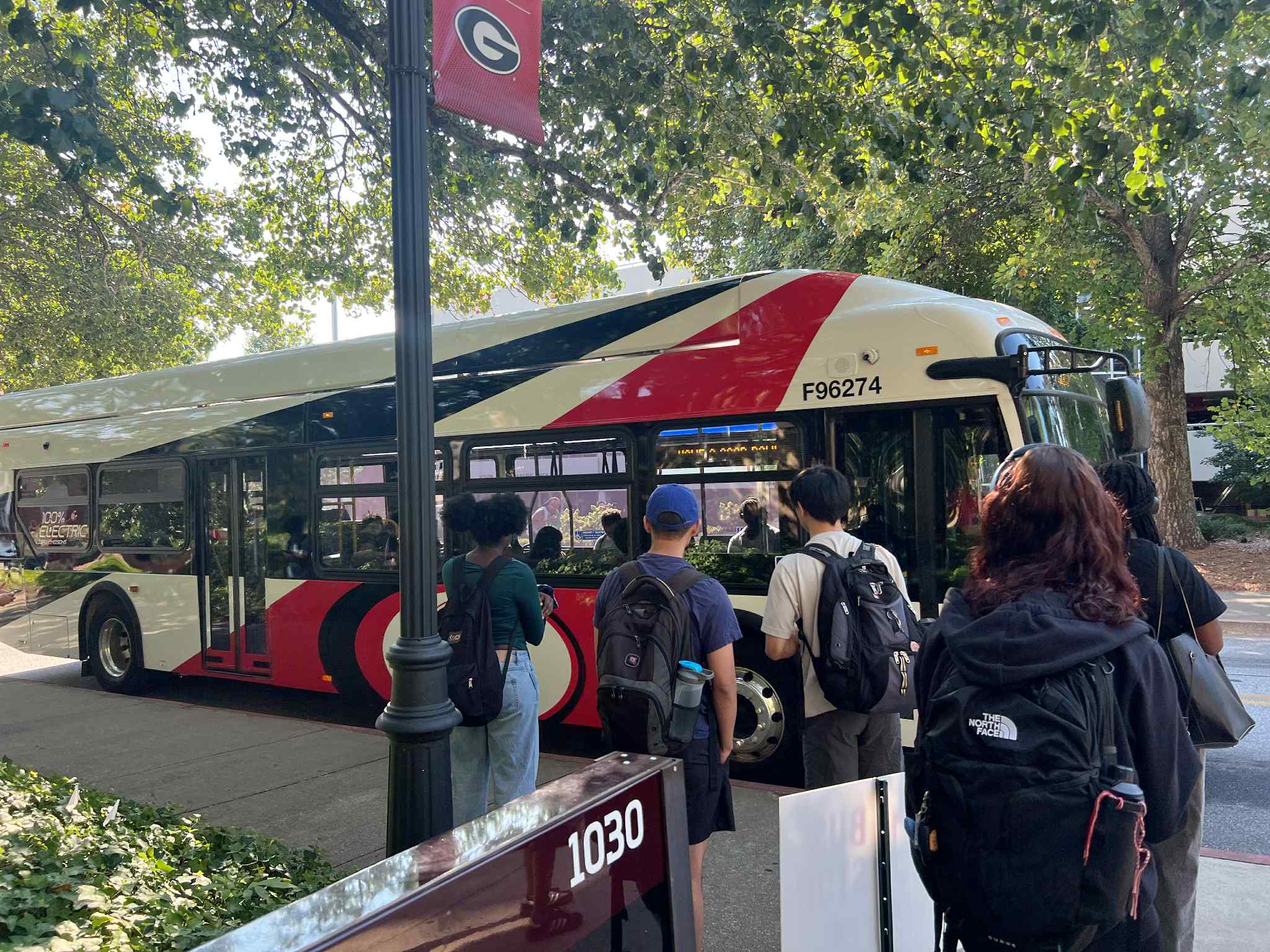The University of Georgia received a $10 million grant in spring 2019 to purchase 20 Proterra Catalyst E2 electric buses and began using them in the fall semester. As part of their sustainability plan, this grant allowed the university to step forward in reducing carbon emissions and provide alternative transportation options for their transit system.
In its 2021 Sustainable Development Goals Report, UGA reported a 70% reduction in greenhouse gas emissions compared to diesel buses, and a 66% decrease in yearly maintenance costs per bus.
This demonstrated UGA’s Transportation and Parking Services long-term goal of operating a completely electric fleet.
However, this past spring, UGA’s TPS brought back several old diesel buses and purchased 10 new ones to ensure continuity of service, as stated in an email by Rebecca Vander Plaats, director of Public Relations and Communications for Auxiliary Services.
Proterra Inc. was the main manufacturer to supply UGA with electric buses. In 2023, Proterra filed for Chapter 11 bankruptcy protection. When a company files for Chapter 11, the main goal for the company is to continue operation while reorganizing finances under court supervision. Proterra was granted court approval in March 2024 and is taking steps to recover. Yet, there are repercussions.
“If you have invested a large amount of money in a new technology like an electric school bus and then you have no way to get that expensive piece of equipment fixed and make sure it’s continually running, I’m sure it gives any director of transportation pause with their priority in making sure that their students get from point A to point B safely,” said Tanya Coventry-Strader, executive director of Mothers & Others For Clean Air.
Reverting back to diesel is just going back to something that we already know is harming human health and harming the environment.”
Exposure to diesel exhaust poses a significant health and environmental risk. Conditions involving the heart and lungs, such as asthma or heart disease, can worsen over time. And with long-term exposure, the risk of cancer increases.
Environmentally, the emissions from the diesel exhaust contain more than 40 toxic air pollutants, which contribute to the pollution that harms our ground-level ozone.
A 2022 report from the U.S. Energy Information Administration reported that diesel fuel consumption accounted for about 25% of total U.S. transportation sector C02 emissions and about 10% of total U.S. energy-related C02 emissions.
“TPS continues to look for ways to use new technologies to increase efficiencies while lowering operating costs,” said Vander Plaats in an email.
When it comes to the Proterra buses, Vander Plaats said TPS has been actively working with its electric bus vendor on necessary repairs.
Proterra was a startup company, and, unfortunately, it went bankrupt, creating challenges for TPS when they needed to repair or replace parts or technology in the buses they purchased from them,” Vander Plaats said.
Some of the Proterra buses are still used in service.
UGA is now purchasing electric buses from New Flyer, a company that has been around for 95 years and is one of the main suppliers of buses, both diesel and electric.
Only eight New Flyer electric buses have been purchased over the summer.
Vander Plaats said TPS is committed to maintaining a diversified fleet of electric and diesel buses. Servicing both provides reliable transportation to the community regardless of economic or environmental conditions.
“If the cost of diesel fuel rises, they can rely more on the electric buses. If our campus experiences a long-term power outage because of a storm or power grid failure, they can rely on the diesel buses.”
Yesenia Hernandez is a fourth-year journalism student with a minor in theatre.









Show Comments (1)
Rebecca
I had been wondering what happened to the electric busses